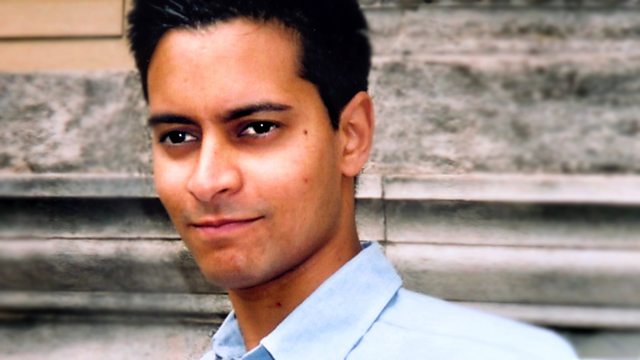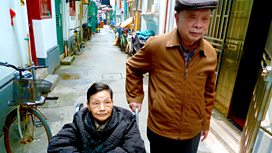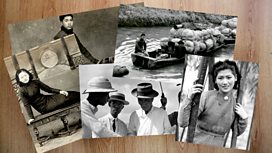China's New Iron Rice Bowl
Rana Mitter is in Beijing to find out how China's government is hoping to improve welfare for its 1.3 billion citizens, with the surprising aim of fostering a nation of consumers.
Rana Mitter travels to Beijing to find out how China's Government is aiming to improve welfare for its 1.3 billion citizens - with a surprising purpose.
Over the last few decades, as market reform has driven China's dizzying economic rise, it has primarily been known as a nation of producers. Meanwhile, in the early years of the reform era, the Maoist 'iron rice bowl' - the cradle-to-grave welfare state, was allowed to rust and fall away. But now the Chinese Government is aiming to improve healthcare and housing, education and pensions, with the aim of fostering a nation of consumers. This, they argue, will help build a stable economy that buys its own goods, rather than relying on selling them to a recession-bound West. But that will only happen, the Government reasons, if people feel secure enough to spend rather than save.
So Rana goes to visit a young Chinese PR executive and keen online shopper in her smart central Beijing flat - and discovers that she has only clambered onto the housing ladder with the aid of years of parental saving. He meets other young professionals who can't get onto the ladder as house prices have risen so high, but who nonetheless expect little support from the state. Will the huge affordable housing programme change how much they feel able to spend?
And if hundreds of millions of Chinese are now members of a new middle class, however pressured, hundreds of millions more are urban migrants. Migrants' rights to welfare are restricted by the 'hukou' system of residency registration. This means that, having left the countryside to help build the new China, they are no longer entitled to full welfare provision. Rana talks to one such migrant in her family's tiny room to find out what this means for her son's education and her own healthcare. Will the hukou system be relaxed, as the Government has hinted? If not, her son will not be allowed to stay on into high school. And he visits another man who was driven to extreme measures to ensure his hukou-less wife's medical treatment. But in a community centre for old people in the heart of the capital, he meets grateful pensioners who have been helped through tough times by the newly-revitalised system for caring for the retired.
So - if young people's elderly relatives are looked after, if urban migrants are integrated into the welfare system, if healthcare and housing provision improve, perhaps such reforms will help grow the new nation of consumers the Government want to see. Or perhaps, as some of those Rana meets contend, it would it be better simply to raise ordinary people's wages. As China's political system gears up for change at the top, this question will be the most crucial one to affect China's social and economic model in the decade to come.
Producer: Phil Tinline.
Last on
![]()
China: Too Old to Get Rich?
Mukul Devichand tells the stories of Shanghai's rapidly ageing population.
![]()
Old Photos Fever
The search for China's pictured past.
Broadcasts
- Tue 18 Sep 2012 20:00麻豆社 Radio 4
- Sun 23 Sep 2012 17:00麻豆社 Radio 4 FM
Featured in...
![]()
From China
A selection of programmes and clips relating to China.
![]()
Chinese New Year
As the Chinese celebrate, we shine a light on life in China, from speed dating to opera.




